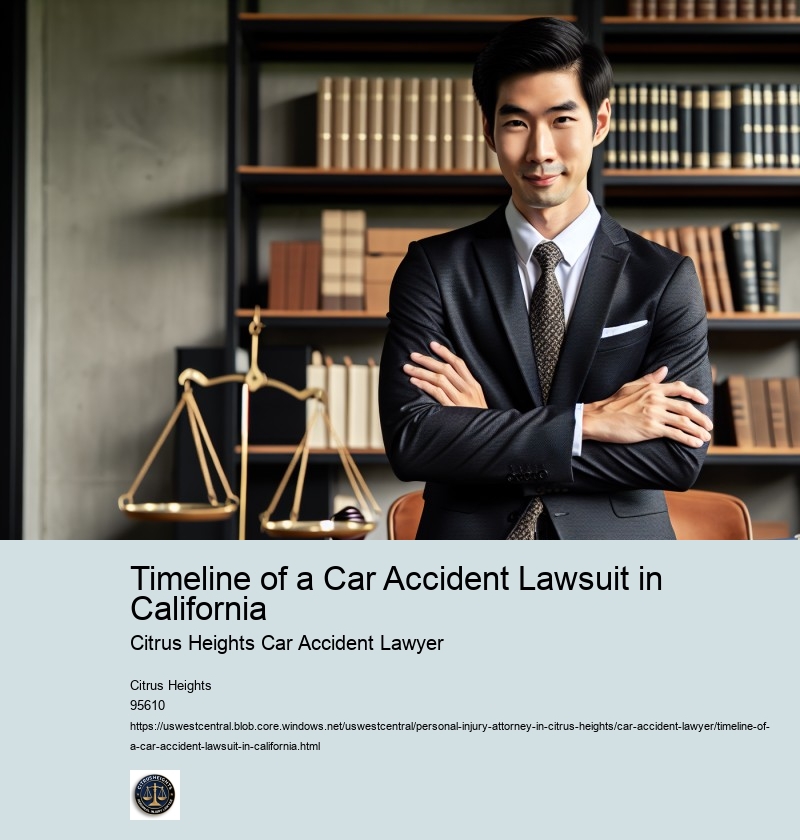Timeline of a Car Accident Lawsuit in California
law

A rollover accident attorney in Citrus Heights may assist with cases involving vehicle rollovers, which are often linked to high speeds, road defects, or vehicle instability. If you’ve been hurt in a car accident, speaking with a personal injury attorney in Citrus Heights can help you understand your legal options and pursue fair compensation.. Whether your crash happened at night, on the weekend, or during a holiday, you can reach out to begin the process. That means calling the police, taking photos if possible, gathering witness info, and avoiding detailed conversations with the other driver or their insurance company. Head-on collision injury representation is available for more serious incidents, which often involve high speeds and long-term recovery needs. Cyclists who are hit by drivers can work with a bicycle accident lawyer in Citrus Heights, who is familiar with local cycling laws and common liability disputes. For high-impact crashes involving a frontal collision, head-on collision injury representation is available through lawyers who know how to handle severe injury claims. You can reach out to start the matching process anytime-day or night. There is no fee for this matching service, and no commitment is required unless you decide to move forward.
It's faster, easier, and built around the details of your situation.
Timeline of a Car Accident Lawsuit in California - plaintiff
- personal injury
- wrongful death claim
- insurance
- expert witness
- San Bernardino
- defense
- equitable remedy
Timeline of a Car Accident Lawsuit in California - justice
- equation
- vehicle insurance
- personal injury lawyer
- rear-end collision
- accident
- matter
- equation
- accuracy and precision
- customer
You save time and avoid uncertainty by working with a system that's designed to identify the best fit based on experience, case type, and client needs.
Timeline of a Car Accident Lawsuit in California - law
- property
- personal injury lawyer
- Road traffic safety
- Reconstruction Era
- mind
- Citrus
- truth
Some settle in a few months, while others take longer due to medical recovery, evidence gathering, or insurance disputes. This structure-also known as a contingency arrangement-means you don't pay any legal fees unless your lawyer wins your case. law This may include hospital bills, follow-up treatment, physical therapy, lost wages, loss of earning capacity, and pain and suffering. The contingency fee model allows you to speak with a Citrus Heights car accident lawyer immediately, with no financial risk. Instead of spending hours comparing law firms or reading online reviews, our service matches you with a lawyer who's already qualified and available to take your case.
Timeline of a Car Accident Lawsuit in California - plaintiff
- Insurance bad faith
- Sacramento County
- regulation
- violence
- mediation
- police force
- regulation
Understanding Citrus Heights Traffic Laws